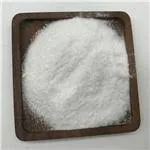Validation of Active Pharmaceutical Ingredients Ensuring Quality and Safety
In the pharmaceutical industry, the validation of Active Pharmaceutical Ingredients (APIs) is a critical process that ensures the safety, efficacy, and quality of medicinal products. APIs are the substances in drugs that produce the intended therapeutic effects, making their validation essential for compliance with regulatory standards and for the overall health of patients.
The validation process for APIs involves a series of rigorous steps designed to confirm that manufacturing processes consistently produce a product that meets predetermined specifications and quality attributes. This includes evaluating the raw materials, manufacturing conditions, and final product testing.
Importance of API Validation
The validation of APIs is pivotal for several reasons. Firstly, it helps safeguard public health by ensuring that the medications produced are safe for consumption. Contaminated or improperly formulated APIs can result in ineffective treatments or, worse, harmful health consequences for patients. Secondly, regulatory agencies such as the U.S. Food and Drug Administration (FDA) and the European Medicines Agency (EMA) require that all pharmaceutical companies adhere to strict validation protocols. Companies that fail to properly validate their APIs may face significant regulatory penalties, including fines and product recalls.
Steps in API Validation
1. Process Design and Development Validation begins during the initial stages of API development. This involves designing a manufacturing process that can consistently produce a high-quality product. It includes determining the appropriate raw materials, equipment, and process conditions.
2. Preliminary Studies Companies conduct preliminary studies to identify critical parameters and quality attributes. These studies help in maintaining consistency throughout the manufacturing process.
validation of active pharmaceutical ingredients

3. Qualification of Equipment and Facilities The manufacturing environment must be qualified to ensure that it meets appropriate standards for cleanliness, functionality, and reliability. This typically involves installation qualification (IQ), operational qualification (OQ), and performance qualification (PQ).
4. Validation of Analytical Methods It is crucial to validate the analytical methods used for testing APIs. This includes assessing their accuracy, precision, specificity, sensitivity, and robustness. Validated methods ensure that the quality of the APIs can be reliably measured.
5. Ongoing Monitoring After initial validation, ongoing monitoring of the manufacturing process is essential. Continuous Process Verification (CPV) ensures that any variations in the process are quickly identified and addressed before they can impact product quality.
6. Re-validation Any modifications in the manufacturing process, equipment, or raw materials should trigger a re-validation to confirm that the changes do not affect the quality of the API.
Regulatory Considerations
In addition to ensuring safety and efficacy, API validation must also comply with regulatory requirements. The FDA provides guidelines on Current Good Manufacturing Practices (CGMP), which outline the minimum requirements for manufacturing, processing, and packing APIs. Compliance with these guidelines is necessary not only for regulatory approval but also for maintaining the trust of healthcare professionals and patients.
Conclusion
The validation of Active Pharmaceutical Ingredients is a foundational element of the pharmaceutical development process. By adhering to stringent validation protocols, pharmaceutical companies can ensure the quality and safety of their products, ultimately contributing to effective patient care. In an industry where the stakes are exceptionally high, the commitment to validating APIs is not just a regulatory obligation; it is a vital component of responsible pharmaceutical practice that prioritizes public health and safety. As the landscape of pharmaceutical development continues to evolve, the principles of API validation will remain a cornerstone of quality assurance and patient protection.

